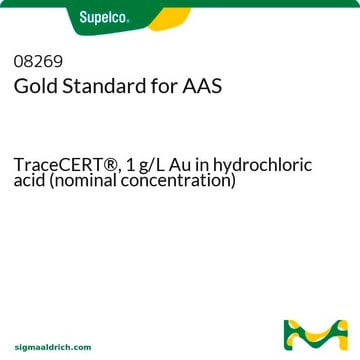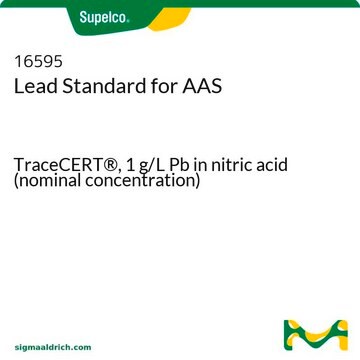08375
Ethyl hexanoate
analytical standard
Synonym(s):
Caproic acid ethyl ester, Ethyl caproate
About This Item
Recommended Products
grade
analytical standard
Quality Level
vapor density
5 (vs air)
Assay
≥99.0% (GC)
shelf life
limited shelf life, expiry date on the label
impurities
≤0.2% water
refractive index
n20/D 1.406-1.408
n20/D 1.407 (lit.)
bp
168 °C (lit.)
density
0.869 g/mL at 25 °C (lit.)
application(s)
cleaning products
cosmetics
flavors and fragrances
food and beverages
personal care
format
neat
SMILES string
CCCCCC(=O)OCC
InChI
1S/C8H16O2/c1-3-5-6-7-8(9)10-4-2/h3-7H2,1-2H3
InChI key
SHZIWNPUGXLXDT-UHFFFAOYSA-N
Looking for similar products? Visit Product Comparison Guide
Related Categories
General description
Application
Signal Word
Warning
Hazard Statements
Precautionary Statements
Hazard Classifications
Flam. Liq. 3
Storage Class Code
3 - Flammable liquids
WGK
WGK 1
Flash Point(F)
127.4 °F - closed cup
Flash Point(C)
53 °C - closed cup
Choose from one of the most recent versions:
Already Own This Product?
Find documentation for the products that you have recently purchased in the Document Library.
Customers Also Viewed
Our team of scientists has experience in all areas of research including Life Science, Material Science, Chemical Synthesis, Chromatography, Analytical and many others.
Contact Technical Service













